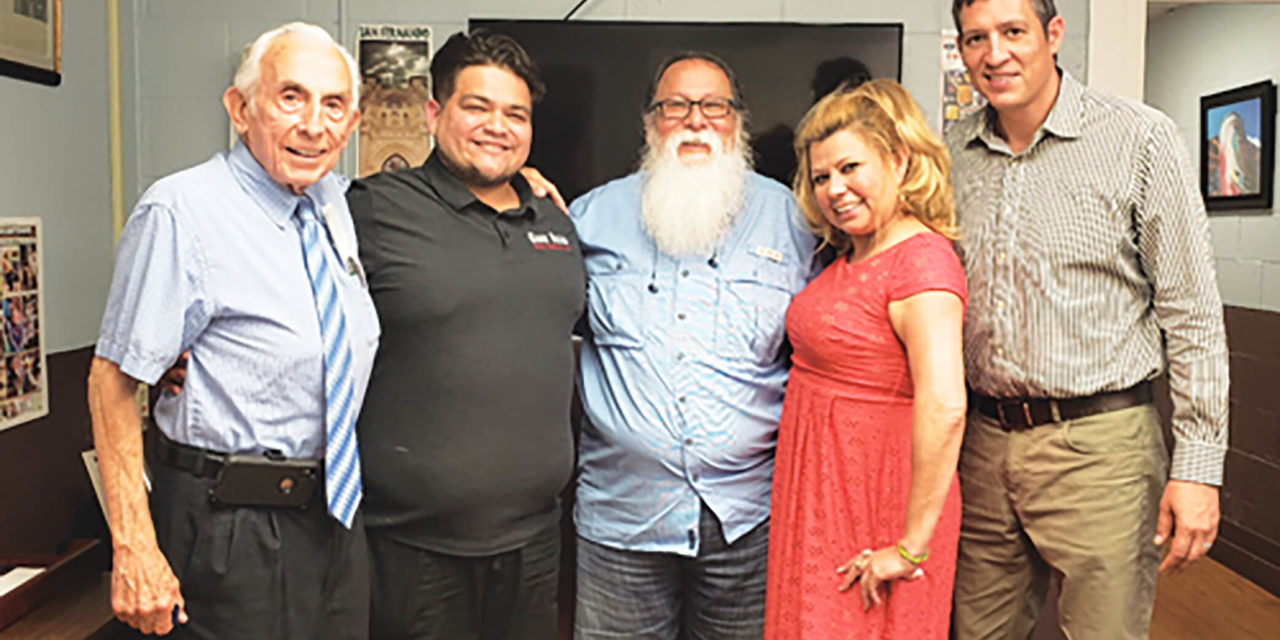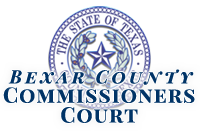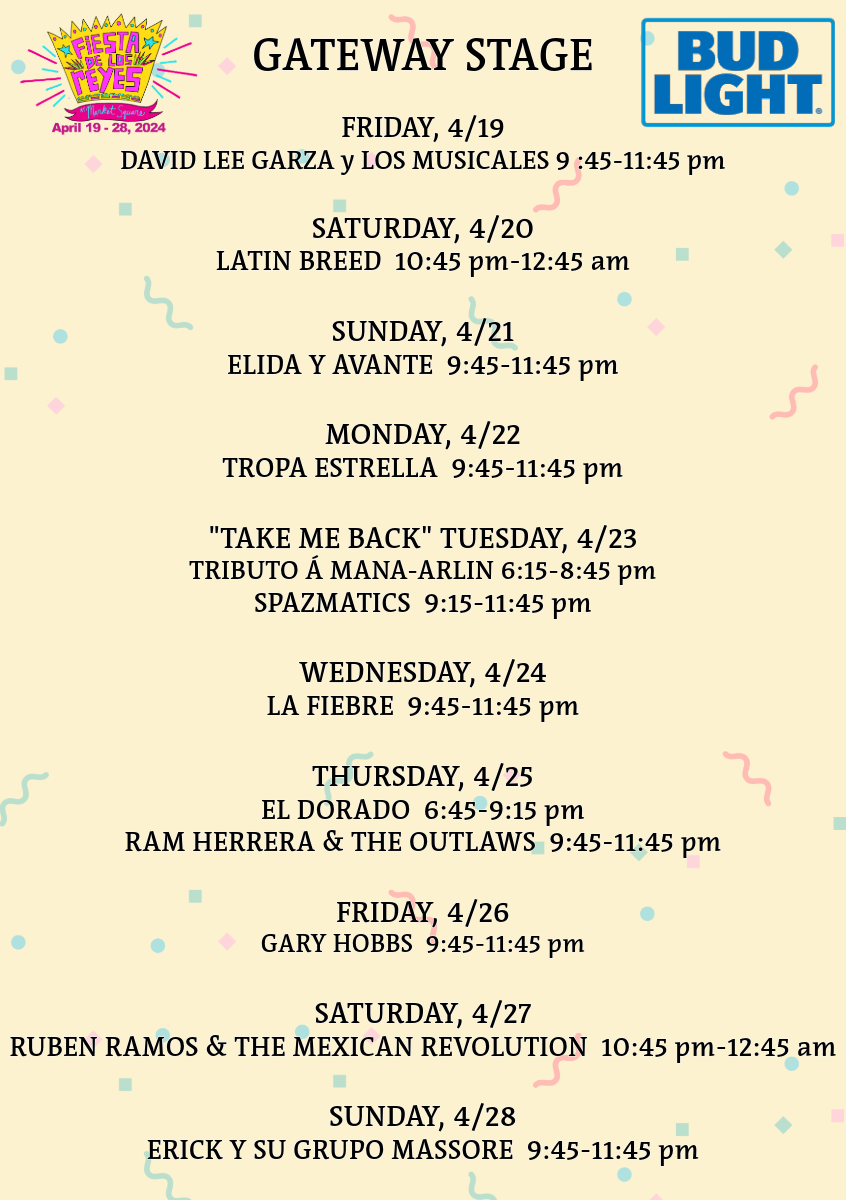Left to Right – Dr. William Elizondo, Dr. Ray Altamirano, Steve Duran, La Prensa Texas CEO/Publisher, Yvette Tello, La Prensa Texas Executive Vice President and Leonard Rodriquez, President/CEO of Westside Development Corporation. (Courtesy photo)
I recently threatened legal action dealing with two medical entities that were having a difficult time successfully coordinating the delivery of an already physician-approved medical device for a family member. Each entity as shamelessly incompetent as the other, seemingly unconcerned with the lives of patients (in this case, my mother) requiring immediate medical attention. Despite waiting over a month for this device, the medical entities played an embarrassing game of passing the blame to each other, leaving us waiting and waiting. At one point, an insurance inaccuracy was brought up as the reason for a potential delay, which we proved to be not the case. This isn’t surprising given that in this society, medical insurance companies write our healthcare bills (see Obamacare) and we as patients are just numbers who pay the price for the greed-fueled medical and pharmaceutical industries responsible for this legislation, whose goal it seems is to deny care.
In January 2019, Dr Ray Altamirano saw a graphic in a business presentation that sickened him: The richest industry in the United States, more than the tech industry, is the health insurance industry. Within that industry, there are CEO’s receiving multimillion dollar quarterly bonuses yet actual physicians are scraping for every penny only to be denied by the insurance company and there’s no reform insight. “The patients are paying for premiums, but the doctors are NOT collecting it. It’s a system tailored to feed the well-fed and screw the little guy and especially the patient.” And what about uninsured patients? They are lost in the abyss with limited access that’s expensive and not trustworthy. Recently Dr. Altamirano ran into his mechanic, an old patient of his, who told the story of his current doctor making monthly appointments for labs he didn’t need and costing him over $1500 over 6 months. There needs another to be an option people like him.
As a response to this, Casa Salud, a new Direct Primary Care (DPC) per-visit model was instituted by San Antonio Southside-proud and altruistic couple Dr. Ray Altamirano, MD and his RN wife Raquel in order to help the uninsured, undocumented and exhausted, all of whom deserve the dignity of rapid medical care at a fair price and without dangerous, time-consuming red tape. Their website states clearly – “Casa Salud is dedicated to serving America’s most vulnerable population: The Sick Uninsured. We can help You! We are not here to take your time. We are not here to take your money. We are here to get you well without the administrative and insurance company limitations.”
This wonderful model of service to our community began on the Southside of San Antonio where Dr. Ray Altamirano grew up, along with his three brothers, to parents who were originally from Coahuila in Northern Mexico. His mother worked at the Levi’s factory until it closed in 1992 and his father was a carpenter until he started his own business, a meat market called R & A Meat Market. Ray served as valedictorian for his class at Harlandale High School in 1998, the second member of his family to be awarded the distinction.
After graduation, he attended Texas A & M University at College Station as a Pre-Med student, which served as a “culture shock” due to the lack of ethnic diversity in campus and in the city. After being wait-listed for medical school in Texas, Ray decided to partake in a path to becoming a medical doctor as a student at Universidad Autonoma de Guadalajara in Mexico, a US-based program partnered with New York Medical College which began in the 1970s. The program required four years in Guadalajara, Mexico, (where he said he got “plenty of Vitamin T – tacos, tortillas, tequila, tortas” as well as enjoyment from the rich culture – charros, mariachis, “all born in that state”) where he lived and studied for four years. After that, he spent one year in the Fifth Pathway program through New York Medical College in Staten Island, New York.
After New York, Dr. Altamirano, MD began a three-year residency in Conroe, Texas at the Lonestar Family Medicine Clinic. Although not as diverse as his hometown, NY or Mexico, he realized, “There are a lot of hard-working people who just need help,” and there was no one else helping. The demand on residents was intense and notably required delivering 120 children into the world. In 2008, he met his wife-to-be Raquel Barrera, a native of Ixmiquilpan, Hidalgo in Mexico who moved with her family to Conroe, TX in 1994. Raquel was assigned to be the nurse for one day during work at the Lonestar Family Medicaid Clinic where she was working as a Medical Assistant at the time when she met Ray. They shared a sense of humor and a passion for providing healthcare to the most vulnerable – the uninsured and the undocumented. The pair married in 2010 and after residency, moved to San Antonio, TX in 2011 to pursue work and be near family.
Dr. Altamirano’s time at Centro Med as a staff physician was professionally fruitful. He made many mentors, including doctors like Dr. Ernesto Parra and Dr. Norma Parra, who have served decades serving the vulnerable and continue to do so with the same passion as day one. But it’s the red tape and operational model of the practice and administrative clicking of buttons resulting in delays in care that bothered him most. “It’s why I left primary care. I didn’t go to medical school to do that. I went to medical school to help people, these people,” says Dr. Altamirano who began realize that the high volume –based business model medical offices use now meant less and less time with patients and more time with the computer. With his growing family, Dr Altamirano changed scope entirely and accepted a new position at Santa Rosa Hospital as a nocturnist. The new job provided a 10-day a month schedule, allowing for 20-days with family. This meant a “higher yield as a dad and as a husband,” he says. He then began his career as a Free-Standing ER doctor. Though grateful for the opportunity to work on the Southside, he felt the neediest patients did not have access to him “my people on the Southside, people from Mexico without papers who are just sick and want to work. This is the demographic I run into and can’t help through this model of practice, and I want to be THEIR doctor, the uninsured and the undocumented. I want to earn their trust and make medical practice how it should be. Between me and and patient!”… And so, Casa Salud was born. While both Raquel and Ray maintain medical roles at notable hospitals, Transplant Cardiothoracic at University Health System and Emergency Care of Floresville as their medical director, respectively, they work together promoting Casa Salud on off-hours to help fill the gap in services for the uninsured, undocumented and low-income families. “Sadly, today’s patient is more afraid of the unknown cost for their care than their actual condition, “says Dr. Altamirano. “By being 100% transparent, we eliminate that fear and I am allowed to practice pure medicine.”
Casa Salud’s primary offering of care set at a flat fee of $100 includes basic lab screenings, (which I’m told provide 90% of patient medical diagnostic information), risk factor assessments and EKGs answer to the immediate needs of the vulnerable and By Isa Fernandez
I recently threatened legal action dealing with two medical entities that were having a difficult time successfully coordinating the delivery of an already physician-approved medical device for a family member. Each entity as shamelessly incompetent as the other, seemingly unconcerned with the lives of patients (in this case, my mother) requiring immediate medical attention. Despite waiting over a month for this device, the medical entities played an embarrassing game of passing the blame to each other, leaving us waiting and waiting. At one point, an insurance inaccuracy was brought up as the reason for a potential delay, which we proved to be not the case. This isn’t surprising given that in this society, medical insurance companies write our healthcare bills (see Obamacare) and we as patients are just numbers who pay the price for the greed-fueled medical and pharmaceutical industries responsible for this legislation, whose goal it seems is to deny care.
In January 2019, Dr Ray Altamirano saw a graphic in a business presentation that sickened him: The richest industry in the United States, more than the tech industry, is the health insurance industry. Within that industry, there are CEO’s receiving multimillion dollar quarterly bonuses yet actual physicians are scraping for every penny only to be denied by the insurance company and there’s no reform insight. “The patients are paying for premiums, but the doctors are NOT collecting it. It’s a system tailored to feed the well-fed and screw the little guy and especially the patient.” And what about uninsured patients? They are lost in the abyss with limited access that’s expensive and not trustworthy. Recently Dr. Altamirano ran into his mechanic, an old patient of his, who told the story of his current doctor making monthly appointments for labs he didn’t need and costing him over $1500 over 6 months. There needs another to be an option people like him.
As a response to this, Casa Salud, a new Direct Primary Care (DPC) per-visit model was instituted by San Antonio Southside-proud and altruistic couple Dr. Ray Altamirano, MD and his RN wife Raquel in order to help the uninsured, undocumented and exhausted, all of whom deserve the dignity of rapid medical care at a fair price and without dangerous, time-consuming red tape. Their website states clearly – “Casa Salud is dedicated to serving America’s most vulnerable population: The Sick Uninsured. We can help You! We are not here to take your time. We are not here to take your money. We are here to get you well without the administrative and insurance company limitations.”
This wonderful model of service to our community began on the Southside of San Antonio where Dr. Ray Altamirano grew up, along with his three brothers, to parents who were originally from Coahuila in Northern Mexico. His mother worked at the Levi’s factory until it closed in 1992 and his father was a carpenter until he started his own business, a meat market called R & A Meat Market. Ray served as valedictorian for his class at Harlandale High School in 1998, the second member of his family to be awarded the distinction.
After graduation, he attended Texas A & M University at College Station as a Pre-Med student, which served as a “culture shock” due to the lack of ethnic diversity in campus and in the city. After being wait-listed for medical school in Texas, Ray decided to partake in a path to becoming a medical doctor as a student at Universidad Autonoma de Guadalajara in Mexico, a US-based program partnered with New York Medical College which began in the 1970s. The program required four years in Guadalajara, Mexico, (where he said he got “plenty of Vitamin T – tacos, tortillas, tequila, tortas” as well as enjoyment from the rich culture – charros, mariachis, “all born in that state”) where he lived and studied for four years. After that, he spent one year in the Fifth Pathway program through New York Medical College in Staten Island, New York.
After New York, Dr. Altamirano, MD began a three-year residency in Conroe, Texas at the Lonestar Family Medicine Clinic. Although not as diverse as his hometown, NY or Mexico, he realized, “There are a lot of hard-working people who just need help,” and there was no one else helping. The demand on residents was intense and notably required delivering 120 children into the world. In 2008, he met his wife-to-be Raquel Barrera, a native of Ixmiquilpan, Hidalgo in Mexico who moved with her family to Conroe, TX in 1994. Raquel was assigned to be the nurse for one day during work at the Lonestar Family Medicaid Clinic where she was working as a Medical Assistant at the time when she met Ray. They shared a sense of humor and a passion for providing healthcare to the most vulnerable – the uninsured and the undocumented. The pair married in 2010 and after residency, moved to San Antonio, TX in 2011 to pursue work and be near family.
Dr. Altamirano’s time at Centro Med as a staff physician was professionally fruitful. He made many mentors, including doctors like Dr. Ernesto Parra and Dr. Norma Parra, who have served decades serving the vulnerable and continue to do so with the same passion as day one. But it’s the red tape and operational model of the practice and administrative clicking of buttons resulting in delays in care that bothered him most. “It’s why I left primary care. I didn’t go to medical school to do that. I went to medical school to help people, these people,” says Dr. Altamirano who began realize that the high volume –based business model medical offices use now meant less and less time with patients and more time with the computer. With his growing family, Dr Altamirano changed scope entirely and accepted a new position at Santa Rosa Hospital as a nocturnist. The new job provided a 10-day a month schedule, allowing for 20-days with family. This meant a “higher yield as a dad and as a husband,” he says. He then began his career as a Free-Standing ER doctor. Though grateful for the opportunity to work on the Southside, he felt the neediest patients did not have access to him “my people on the Southside, people from Mexico without papers who are just sick and want to work. This is the demographic I run into and can’t help through this model of practice, and I want to be THEIR doctor, the uninsured and the undocumented. I want to earn their trust and make medical practice how it should be. Between me and and patient!”… And so, Casa Salud was born. While both Raquel and Ray maintain medical roles at notable hospitals, Transplant Cardiothoracic at University Health System and Emergency Care of Floresville as their medical director, respectively, they work together promoting Casa Salud on off-hours to help fill the gap in services for the uninsured, undocumented and low-income families. “Sadly, today’s patient is more afraid of the unknown cost for their care than their actual condition, “says Dr. Altamirano. “By being 100% transparent, we eliminate that fear and I am allowed to practice pure medicine.”
Casa Salud’s primary offering of care set at a flat fee of $100 includes basic lab screenings, (which I’m told provide 90% of patient medical diagnostic information), risk factor assessments and EKGs answer to the immediate needs of the vulnerable and save them money. Services are bilingual and identification is not required by patients to receive care (specifically important to the undocumented, many of whom fear retribution), unless they require a controlled substance prescription. Referrals for non-routine care (colonoscopies, women’s wellness exams, cancer treatment or other catastrophic care) are given to like-minded medical professionals utilizing the same model of low-cost, no guesswork cost care. Casa Salud includes a “cash price” directory (for heart, eye, skin, every medical need) for care that any of parent referral clinics, helping to avoid any guesswork for pay. Partnerships with doctors, medical and pharmaceutical businesses have resulted in tailored cost-saving care for patients who otherwise would not be able to afford needed care. This information will be publicly posted as a resource to help “drive the market down for the patient” and “just put it out there and promote them (businesses selling medical equipment),” which is mutually beneficial to all. As an example of going above and beyond for patients, Casa Salud worked closely with a pharmaceutical business to help lower the price of insulin for an elderly woman.
Other metro cities in Texas have the DPC models such as Austin, Dallas and Houston. “SA is trailing,” says Ray, “And I want to encourage others providers to practice this way,” He invites nurse practitioner students and PA students wanting some tutelage to contact him, “Especially if I can get them now before they get into the health insurance machine we call our current healthcare system. They can do it this way, and will still to make the money and NOT add to the pockets of the insurer.”
Patients can take advantage of weekend hours and after-5 weekend hours. Right now, patients find out about services through social media like Facebook and word of mouth from patients.
Hours are by appointment only, Wednesday 6pm -9pm, Friday 6pm-9pm and Sunday 9am-2pm. Please call prior to appointment. For more information, visit https://casasalud210.com/ or https://www.facebook.com/CasaSalud.9465 or call (210) 343-2500. Casa Salud Family Medicine Clinic – 7127 Somerset Road Ste 104, San Antonio, Texas 78211












